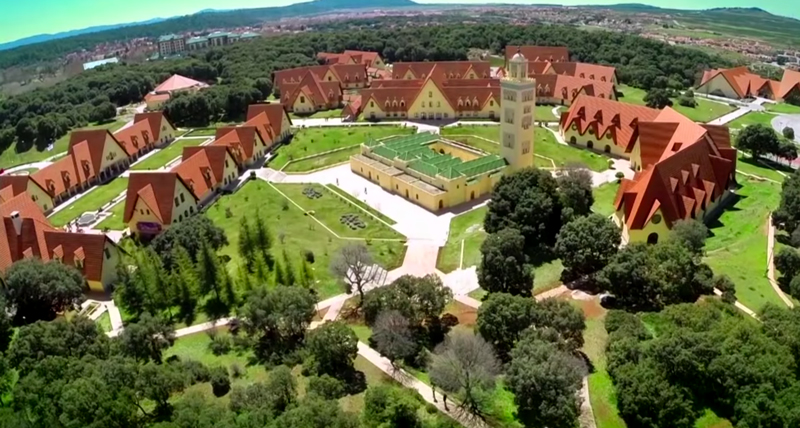[symple_box]
![]() Dr. Mifdal Mohamed is a Professor at Chouaib Doukkali University, Morocco. [/symple_box]
Dr. Mifdal Mohamed is a Professor at Chouaib Doukkali University, Morocco. [/symple_box]
El Jadida, Morocco—This article investigates the ways bottom-up media content circulates through social media sites and how this practice contributes to the establishment of a more participatory culture in Morocco. It also seeks to explore the possibility of this bottom-up form of knowledge circulation to culminate in what Ryan M. Milner refers to as “a counterpublic model of mediated public discourse” (2013: 67).
[symple_box color=”white”]![]()
![]() When a piece of news goes viral, its effect goes beyond the borders of the virtual world and can have real political consequences. Security agents who were caught red-handed receiving bribes from citizens were dismissed and sued; scandal-hit ministers were forced to resign, and some politicians roasted by social media users were officially interrogated. [/symple_box]
When a piece of news goes viral, its effect goes beyond the borders of the virtual world and can have real political consequences. Security agents who were caught red-handed receiving bribes from citizens were dismissed and sued; scandal-hit ministers were forced to resign, and some politicians roasted by social media users were officially interrogated. [/symple_box]
The top-down distribution of media content by state-run television, private radios and print press is somewhat controlled either directly via censorship or ‘voluntarily’ via self-censorship. Any transgression is supposed to be penalized by HACA, The High Authority for Audiovisual communication; however, transgressions are mostly professional or pertain to issues of taste and morality. Political questioning of the political order is rare, and critique is mostly displaced and focuses more on the mismanagement of the political situation by politicians and state officials, especially in print media. By and large, the distribution of media content is controlled and shaped in terms of the political interests of the ruling elites. Media, thus, should maintain the hegemony of the ruling elites and sustain political stability, and any transgression of this type should be dealt with as a challenge to authority.
In this political context, online media hasn’t been very challenging either, apart from Lakom and Goud which have questioned the existing order in different ways and exposed corruption and abuses. Nevertheless, it is believed that Lakom was shut down due to some compromise between the owner of the online newspaper and the state. Attacked and hacked many times, Goud will face the same fate unless the resistance of its staff is strong enough to survive these attacks.
[symple_box color=”white”] ![]()
![]() Citizen journalism is an alternative form of media that provides information and news from a point of view that may contradict the mainstream public opinion. It provides a critical perspective and promotes a counter-hegemonic discourse; it enables dissenting voices to be heard and reveals what is untold and concealed by mainstream media. [/symple_box]
Citizen journalism is an alternative form of media that provides information and news from a point of view that may contradict the mainstream public opinion. It provides a critical perspective and promotes a counter-hegemonic discourse; it enables dissenting voices to be heard and reveals what is untold and concealed by mainstream media. [/symple_box]
Other online newspapers are growing and getting larger readership like Hespress; however, most of them are politically correct and maintain the status quo. This should not imply that maintaining the status quo is totally negative, but my contention is that hegemony should be resisted if it is based on manipulation and authoritarianism. In line with this view, I argue that top-down distribution of media content is shaped and controlled by political and legal norms and is managed accordingly. Bottom-up media content is, conversely, less controlled and differs from the top-down media content in many ways. It is either created by ordinary people and posted on social media sites like You Tube and Facebook, or appropriated from mass media and reframed to serve the user’s purposes, by adding comments or altering its essential ingredients (e.g. photo, headline).
The user-generated media content is a new alternative form of information and political commentary that circulates massively on social media. It belongs to an informal media sector that lacks organization and structuration, but offers an alternative source of information and news that escapes censorship and often oversteps political boundaries by exposing the abuses of politicians. It may be argued that this type of journalism- that can justly be labeled “citizen journalism- is a form of everyday resistance whereby citizens, equipped with digital devices and having access to social media, challenge hegemony and question the politics of the ruling elites by exposing their abuses and revealing their mechanisms of manipulation. In most cases, everyday news is reported from a perspective that is different from that of the official or controlled media.
Because the media content, be it a photo, a video, a text or a cartoon, is posted on social media where sharing is a common practice, it is bound to circulate endlessly, which endows it with more effect and a longer span of life. When a piece of news goes viral, its effect goes beyond the borders of the virtual world and can have real political consequences. Security agents who were caught red-handed receiving bribes from citizens were dismissed and sued; scandal-hit ministers were forced to resign, and some politicians roasted by social media users were officially interrogated.
Nevertheless, this bottom-up, user-generated media content has some shortcomings and has been criticized by many, including social media users themselves. Some critics maintain that this informal citizen journalism is inaccurate and unprofessional as a lot of content can be either mere gossip or completely false; Twitter and other media sites have helped fake death stories go viral, fooling the average person into believing that some celebrity has died. Similarly, a lot of inexact information spreads and circulates in social media sites, and this can be considered as misinformation and abuse. People tend to be cautious about the user-generated news and crosscheck it by visiting or consulting other media.
This does not mean, though, that this type of journalism is totally negative and misleading. The criticisms cited above and the like should not belie the pivotal importance of this type of journalism in a context where freedom of speech and press is controlled, or censored. Citizen journalism is an alternative form of media that provides information and news from a point of view that may contradict the mainstream public opinion. It provides a critical perspective and promotes a counter-hegemonic discourse; it enables dissenting voices to be heard and reveals what is untold and concealed by mainstream media. The social media sites sustain citizen journalism and promote it as an alternative space for counterpublics where political dissidents, actually expelled from the public sphere, can challenge the existing power and its version of reality.
Besides, citizen journalism can promote media convergence whereby content flows across multiple media platforms, and, being crosschecked by users and made more accurate, represents reality as it is being approached from different perspectives. Horizontal as it is, citizen journalism enhances the emergence of a participatory culture (Jenkins 2006) which contrasts with older notions of passive media spectatorship. Ordinary citizens participate in the generation of truth and values and, thus, in the construction of a multiple reality. It can be argued that this is a cultural shift in the approach of Moroccans to politics, and a real move toward a dialogic construction of reality where publics and counterpublics (Warner 2005) interact endlessly, eroding abusive hegemony and promoting pluralism.
It is worth noting that resistance to this type of active journalism will persist for some time; however, the shift toward pluralism and the emergence of counterpublics will certainly have considerable effect on the practice of politics in Morocco as the ongoing changes are irreversible.
[symple_box]Please Note that the views expressed in all opinions on The Moroccan Times are the authors’s own and do not reflect The Moroccan Times editorial policy.[/symple_box]





